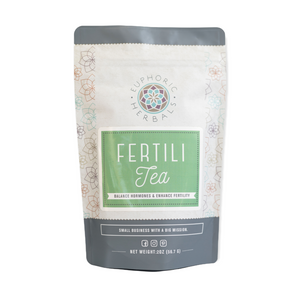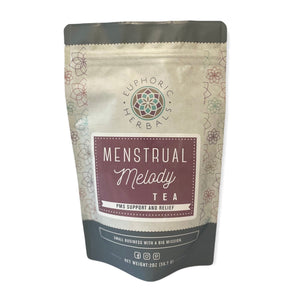It is easy for new moms to feel as though they have too much to worry about. Some of these things they never even considered before having a baby.
For instance, can breastfed babies become overweight?
It seems like it shouldn't be possible. After all, breast milk is the "perfect" food. It has no fillers or extras, which means that it's basically all good nutritional value.
Nonetheless, some moms worry that their baby weighs too much. Is this really a problem? What should you do about it?
Exclusive Breastfeeding Can Lead to Rapid Growth
Did you know that babies who are exclusively breastfed tend to gain weight more quickly than babies who are fed with formula? It's true, especially for the first two to three months. Between nine and 12 months, those differences tend to taper off, and it is at this time that formula-fed babies may actually start to put on weight faster.
While exclusive breastfeeding can lead to rapid growth, there is no evidence that this will lead to obesity when the baby becomes a child or grows into an adult.
It is not unusual for babies who quickly gain weight to lose much of it once their mobility increases. All of that crawling, rolling over, pulling up, walking and even running burns a large amount of calories. It's also worth keeping in mind that many toddlers feel too "busy" to have time for proper meals. They also tend to be extremely picky eaters, which severely limits what they are willing to eat.
Accordingly, the fat stores that are laid in during infancy serve toddlers well as they lessen the need to rely on immediate food intake.
Plus, doctors still agree that breast milk is the perfect food. Without fillers and empty calories, you can trust that your baby is getting all of the nutrition she needs and nothing that she doesn't. Keep in mind that the amount of fat and calories in your breast milk is not affected by how much fat or sugar you eat. Nonetheless, you can alter the types of fat in your breast milk by varying the types of fat that you ingest.
Should I Limit How Much My Baby Eats?

This generally is not considered advisable. Strategies like limiting nursing time, employing a pacifier to put off feeding until a specific time or stretching out feedings can actually be dangerous as they limit your baby's growth and development.
Remember, your baby needs the fat and nutrients that are in your breast milk to ensure proper brain development and growth. It is only when you feed your baby as he provides cues that you make certain that his nutritional needs are being met.
Plus, regular breastfeeding ensures that you are maintaining your milk supply, and this means that you can keep breastfeeding for as long as you like.
Why Do Some Babies Gain Weight Faster than Usual?
It is true that some babies just seem to gain weight faster than others. If both of these babies are being exclusively breastfed, what accounts for the difference in their weight?
Several factors could be involved, such as:
- Genetic predisposition: Were your other babies larger than the norm? How about your siblings, your parents or other family members?
- An overabundant supply of milk: If you are producing a bit more milk than your baby needs on a daily basis, this may cause him to eat a little more than he otherwise would. However, this is not necessarily a cause for concern unless you or your baby is really troubled by the situation.
- An undiagnosed health problem: These may include renal anomalies, congestive heart failure or a disorder of the endocrine system. It is even more critical for babies who have been diagnosed with one of these conditions to continue with breast feeding so that they can get stronger.
- Baby sometimes drinks breast milk from a bottle: Babies who nurse at the breast have better control over how much they eat. Feeding with a bottle provides a firmer teat, which may stimulate a strong impulse to suck. This allows the baby to continue taking in milk whether it is needed or not. A bottle ensures a fast and continuous flow of milk, forcing the baby to keep eating or be flooded.
Preventing Obesity in Children
While it is pretty difficult to actually overfeed an infant who is exclusively breastfed, this is not the case with older children, even those who are just being introduced to solid foods. Here are some tips for helping to prevent obesity in children.
- Breastfeed your baby for as long as possible – many experts suggest breastfeeding for up to one year
- Refrain from providing babies with solid foods until they are older than six months
- Add solid foods slowly, opting to nurse before solid foods are offered – This ensures that most of your baby's calories are still coming from breast milk through the end of their first year.
- Avoid pushing your baby or toddler to keep eating when they are showing signs of satiety
- Encourage baby to play and move as frequently and for as long as possible
- Set a positive example by choosing healthy, nutrient-dense foods and regularly exercising
- Remember that you are helping your baby to develop healthy habits that will last for a lifetime.
Why Does Formula Feeding Increase the Risk of Obesity?

It is not a foregone conclusion that babies who are fed formula will become obese. Nonetheless, the data suggest that babies who receive more formula feedings are more likely to be obese later in life.
There may be a few reasons behind this. For instance, formula does not contain a hormone called leptin. This hormone, which is present in breast milk, is responsible for regulating food intake. The absence of leptin may mean that a formula-fed baby does not have the same ability for self-regulation that breastfed babies do.
Additionally, formula frequently has a higher protein content than does breast milk. This additional protein can promote rapid growth. To avoid this, consider choosing a formula that has a lower protein content.
Another factor that may lead to a later risk of obesity is the instructions that come with the formula. Formula comes with guidelines as far as how much and how frequently your baby should be fed. This may lead parents to try to get their baby to finish a bottle despite the baby showing signs of satiety or the parents providing bottles when baby is not giving hunger cues.
If you are bottle feeding your baby with formula, then it is critical that you feed your baby when she is clearly hungry and take the bottle away when she is telling your that she is full.
When in Doubt, Visit Your Pediatrician
If you are worried that your baby is overweight or underweight, then the only sensible thing to do is to ask your pediatrician. Doctors rely on averages and statistics to determine what is "normal" for babies at each stage of development.
Your doctor will perform a comprehensive checkup to ensure that your baby is healthy and thriving. Although your baby may be slightly larger or smaller than peers his age, this does not necessarily indicate that anything is seriously wrong.
Above all, take your doctor's advice when it comes to your baby and whether or not he is at a healthy weight and developing normally.
Lactation Assistance from Euphoric Herbals
At Euphoric Herbals, we help moms by providing teas and capsules that are all-natural and organic. Using these healthful supplements is a great way to ensure your milk supply while also supporting the nutritional needs of you and your baby.
Trust us to provide you with the guidance and recommendations that you need to both increase and enrich your breast milk.














































































































































































